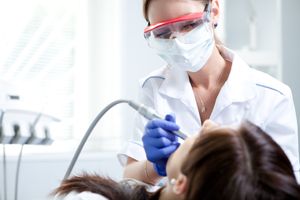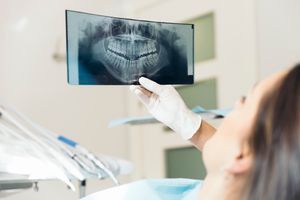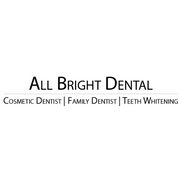How Is Your Oral Health Linked to Your Overall Health?

The condition of your mouth is often a key indicator of how healthy the rest of your body is at a given moment. When physical issues arise, however, your oral health can take a back seat to other treatments. While visits to the dentist don’t feel like a high priority during periods of significant health problems, taking care of your smile can help ease the discomfort that diseases elsewhere can cause. Here’s how this back-and-forth relationship between oral health and overall health play a role in your day-to-day treatment.
How Bad Oral Health Can Affect Your Body
Bacteria

Brushing your teeth can have more implications than merely keeping your pearly whites clean. Issues with oral health are often telltale signs of health issues elsewhere. While bacteria in your mouth are not inherently harmful, they can cause problems all over when they reach high levels.
Beyond standard tooth decay and gum disease, oral bacteria can spread through your bloodstream to other parts of the body—namely your heart. Endocarditis—or an infection of the inner lining of your heart—is the most prevalent threat of poor oral health. If you don’t brush and floss your teeth regularly, then your gums will bleed, giving these bacteria that are already wreaking havoc on your mouth the opportunity to enter the bloodstream. To keep these wayward microbes under control, regular dentist visits and daily oral care are essential to your routine.
Saliva
This fluid that your mouth naturally makes is regularly used in diagnostic tests for a variety of ailments. In newborns, cortisol levels in saliva test stress responses. Certain cancers, hepatitis, HIV infection, illegal drugs, and even environmental toxins are traceable with a mere cheek swab. Saliva’s diagnostic capabilities come from its primary purpose in your mouth: to clean and protect it.
Dentists will always suggest that you only eat sweets at mealtimes due to increased saliva production, which washes away the sugar that coats your teeth. Beyond cavity prevention, though, it does far more. Saliva fights against disease-causing bacteria and viruses that incite infection and make you sick. Antibodies in the fluid will attack viruses, while enzymes destroy harmful bacteria by invading and inhibiting their growth. It also contains proteins called histatins that exist solely to limit the growth of a naturally occurring fungus called candida, which can create the condition “oral thrush” when that fungus grows out of control.
When you are treating other illnesses with medications like decongestants, antihistamines, painkillers, or antidepressants, dry mouth is a common side effect. When this occurs, your mouth’s first line of defense is compromised. The naturally occurring bacteria can grow waywardly into plaque on your teeth, causing myriad health issues. When your gums begin to bleed due to plaque buildup and gingivitis, as mentioned earlier, that gives microbes that opportunity to enter your bloodstream. If you are experiencing dry mouth, chat with your dentist about an oral rinse to alleviate this issue.
How Other Health Issues Can Affect Your Oral Health
Diabetes
Diabetes and oral health tend to have a cyclic relationship. This condition prevents the body from producing insulin, which complicates its ability to process sugar. It reduces the body’s resistance to infection, putting gums at risk of gingivitis and periodontitis. Gum disease is further affected by dry mouth as an auxiliary symptom of diabetes. Studies also show that if you have gum disease while you have diabetes, you have a harder time controlling your blood sugar levels. To inhibit this cycle, you can work with your dentist to manage gum health to help control other health issues.
HIV/AIDS
Human immunodeficiency virus (HIV) is a disease that attacks the immune system, making it harder to fight off infection; its final stage, acquired immunodeficiency syndrome (AIDS) leaves the immune system so weak that infection and cancer often take over. As a result, a patient’s mouth is often the first place where indicators of HIV arise, causing painful symptoms due to one’s susceptibility to infection.
Dry mouth and thrush are typically the first symptoms that lead to white lesions on the tongue, canker sores, and mouth ulcers. More severe iterations of gum disease also occur in HIV patients, including red band gingivitis, in which a thin line of irritated, red tissue marks the perimeter of the gum line. A worse case is ulcerative periodontitis, which kills gingival tissues more substantially than other forms of gum disease. In severe situations, it even rots away the periodontal ligament and the alveolar bone—the sockets in the jaw that hold teeth.
These oral health issues are imminent threats if you are an HIV patient because not only can they be painful, but they also can make it difficult to chew or swallow. Deprived of these basic needs, you could also face malnutrition and may even have difficulty taking HIV medication. If you get ahead of these complications with proper oral care, regular visits to the dentist, and a defined medication schedule, you can mitigate them as much as possible. HIV medication can also cause dry mouth, so you should discuss with your dentist to alleviate this side effect.
Osteoporosis

This disease in middle-aged and older adults causes a person’s bones to become weak and brittle. The bones that are the anchor to a smile are no exception to this condition. As a reminder, the alveolar bone, or alveolar process, is the collection of sockets in the jaw that support teeth. When bone density decreases here, there are increases in loose teeth and tooth loss.
Women with osteoporosis are particularly susceptible to this issue, with three times the probability of tooth loss than those without the disease. Beyond teeth falling out, decreased alveolar bone density can make fitting dentures more difficult as well as complicate oral procedures for this demographic. Studies also suggest that bone loss in this area leaves bone more susceptible to bacteria that cause periodontitis.
To treat oral health problems linked to this bone disease, doctors and dentists alike will recommend a well-balanced diet that relies heavily on calcium and vitamin D, along with regular weight-bearing exercise to strengthen bones. Eliminating smoking and reducing alcohol intake can also alleviate symptoms.
Your dentist is a valuable resource in discovering bone diseases like osteoporosis because they take diagnostic X-rays that can help spot low bone density; they can also encourage you to discuss their findings with your regular doctor. Once diagnosed, you should also check in with your dentist about loose teeth, receding or detached gum, or ill-fitting dentures.
Cancer
More than one-third of cancer patients experience oral health issues when undergoing treatment. These complications are due to the effects of chemotherapy on the immune system. This standard cancer treatment kills rapidly multiplying cells before they can spread, which can weaken your immune system and make you more susceptible to infection. If you aren’t vigilant about your oral care if you have cancer, you can develop gum disease and other problems that can delay your cancer treatment if they become severe.
Radiation therapy, especially for cancers of the head and neck, can damage your salivary glands and cause severe dry mouth. As mentioned previously, this issue will promote tooth decay and infection if you don’t treat it with the assistance of your dentist. Other side effects include mouth sores, sensitive gums, changes to your sense of taste, and jaw pain.
To mitigate any oral health problems during your cancer treatment, you should include your dentist in your cancer care team. Visit your dentist two weeks before you begin treatment for a full exam, and once you start chemo and radiation, remain vigilant of sores, bleeding, or general mouth pain. Throughout your cancer treatment, stay on top of a regular oral health routine, brushing your teeth, tongue, and gums twice a day, flossing, and rinsing with an alcohol-free mouthwash. To combat dry mouth, drink plenty of water, chew sugarless gum, or use a saliva substitute offered by your dentist either over-the-counter or by prescription.
To give your overall health a needed boost, tend to your oral health with the help of a qualified dentist. At All Bright Dental, our team will work with you to assure your smile isn’t among any health issues you face. From regular teeth cleanings to dentures and emergency dentistry, we will provide preventative care and help fix issues as they arise. To make the most of your dental care, mention any substantial health issues to our dentist, Dr. Gennadiy Kravets, DMD, so that he can devise a plan of action for your smile. For more information about the full range of services that we provide at our Mamaroneck, NY, practice, visit our website or give us a call at (914) 594-9092 today.
About the Business
Have a question? Ask the experts!
Send your question

